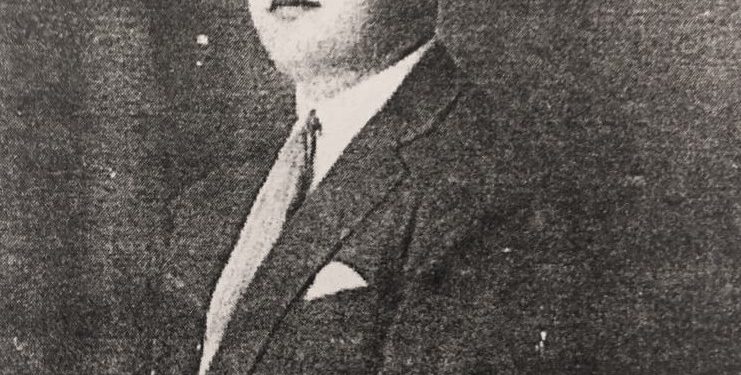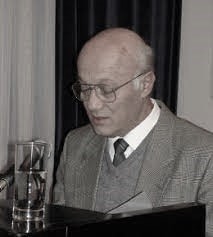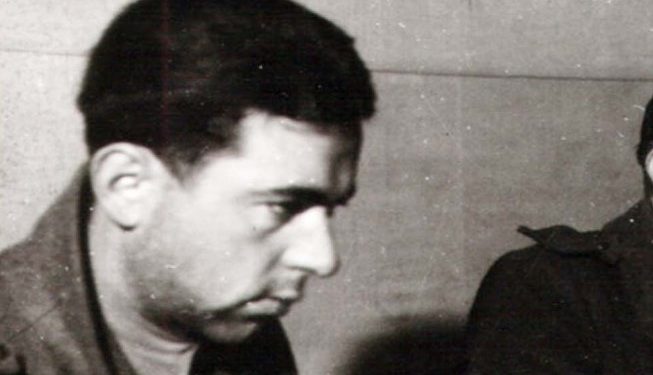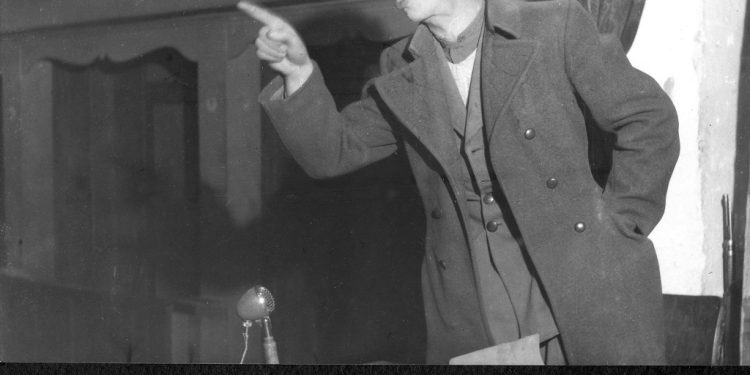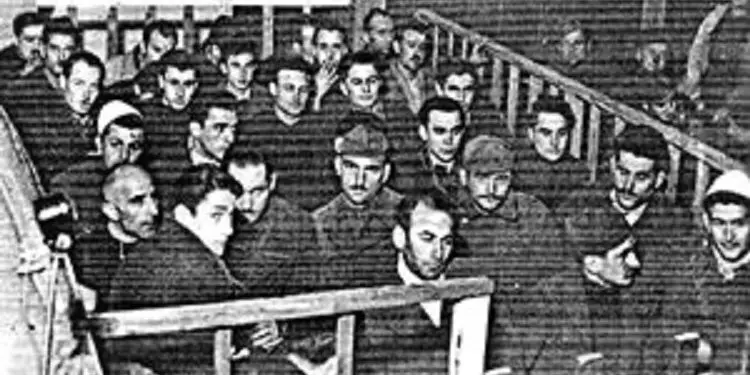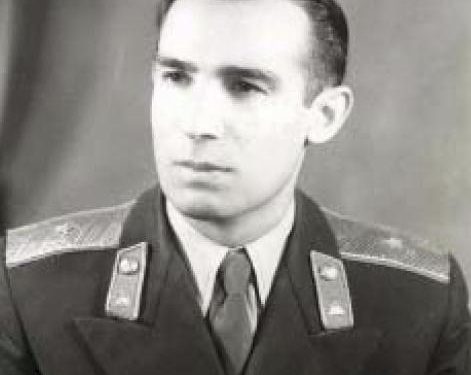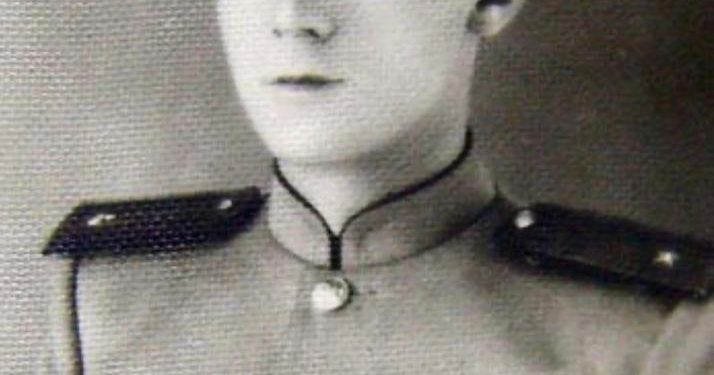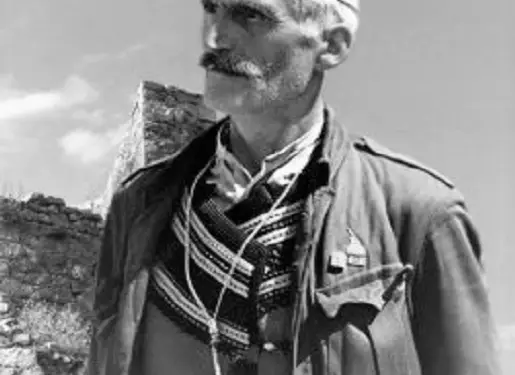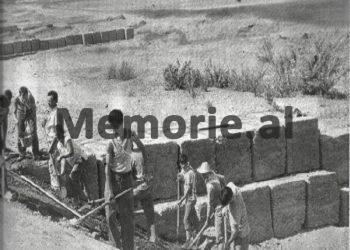From Kolec Topalli
Memorie.al / Shkodra, with an ancient tradition that reaches the first centuries of European civilization, with a culture that stood out among all other cities until the Second World War, was at the same time the epicenter of the anti-communist resistance in Albania, because everything that brought by communism, it was in complete contrast with the development of this city, with the mindset and life of the Shkodra population. Shkodra was the Albanian fortress that resisted the Ottoman armies longer than any other. She was the one who took the lead among the first, not accepting anything that contradicted the traditions of western civic life. Shkodra is the city that made special contributions to the movement for the declaration of independence after a 500-year rule.
The strong support in the League of Prizren, the protection of Hoti and Gruda, the active participation in the uprisings of 1911-1912, the raising of the Albanian flag in Hoti and many other events, proved that the invaders never found it easy to subdue the spirit of the freedom of this three.
The names of Ded Gjoluli, Mehmet Shpendi, Prel Tuli, Marash Delija and many others have their deserved place in history. While the names of Oso Kuka, Marash Uci, Tringa and many others, were turned into legends by the great national poet Father Gjergj Fishta.
This is the reason why the anti-communist resistance started in Shkodër. The first attempt, carried out with weapons in hand, started in the Great Highlands. None of the countries of Eastern Europe, including Russia itself, the cradle of the red plague, loved communism, but Albania was the first country to start resistance against it, with weapons in hand. And this was started by the men of the Highlands, known in other cases for their bravery. For a month, the battle continued between the forces of the Highlanders, led by Llesh Marashi, and the forces of the 1st Brigade, which was sowing terror throughout the Highlands.
The war of Tamara, which took place in the heart of the harsh winter of 1945, has remained unknown in the history of this country, which denied everything that had to do with freedom and human dignity. But it was preserved in the memory of the brave people of the Highlands, in the persecuted families and in the memory of the nation. The few witnesses who survived the communist prisons and torture testify that the communist forces came with a box full of handcuffs, which they would use to sow terror.
Prek Cali with 15 men continued the resistance in the cave that still bears the name of the brave warrior. The treacherous communists burned houses even with fighters inside who did not surrender, shot brave fighters without trial in front of the people, buried others alive, sowed terror and panic everywhere to subjugate those who had not been subjugated for centuries.
But the rebellious spirit of the Great Highlands was not defeated. The Assembly of the Mountains convened in January 1945 decided to resume the resistance. Koplik was taken and numerous attempts were made with the communist forces, where many were killed; but at last the Highland forces retired to the mountains, to check the terror which had begun.
The open trials in Shkodër sentenced many brave men to death, others to many years in prison and exile. Many houses were burnt. Prisons and internment camps were filled like never before. Resistance was broken, but the freedom-loving spirit was not defeated. He appeared in another anti-communist movement, a year later in the Postrriba uprising.
Shkodra and Postrriba proved that they are not easily defeated. The castle of Rozafa, proof of endurance over the centuries, gave dedication to other castles around it. Shkodra again became the center of the anti-communist resistance, because it never believed the rampant communist propaganda.
They promised social equality, freedom, happiness, but Shkodra did not believe it, seeing only misery, war with each other, revenge, infidelity and robbery. The best intellectuals, the most prominent men, the most learned clergy, young and old, students and women, were put on the black lists of the State Security to be killed, to be massacred, to be punished with trial and without trial.
The fratricide, controls, raids, crimes against innocent people began. In the gloomy mornings of those days, sad dreams were interrupted by the shrapnel of the rifles, which fell on the innocent bodies of those who were shot on the walls of the Rmaj cemetery.
The looting of merchants began. The goods confiscated by force were traveling to Yugoslavia, a friend of the Albanian communists in the robbery. A black shadow had fallen over the ancient city. This was Shkodra in 1945, desperate, murdered, deserted, and persecuted. Hysterical cries were heard everywhere; “revenge”.
Assemblies and confiscated houses had turned into prisons, where the screams of those tortured to death could be heard all day. In the conditions of savage terror, when any attempt at democracy by peaceful means was impossible, there was no other way left but to attempt by arms. Therefore, completely disappointed by the Slavic-communist clique, which usurped power after the Second World War, revolted by the massacres and horrors of communism, the people of Shkodra rose again against the communist beast, which was choking with blood, every effort for freedom and democracy.
The Postrriba movement was the answer given by the people of Shkodra to the communist dictatorial government, which had trampled all human rights and democratic freedoms, establishing a bloody power, whose agenda was the suppression of every free thought, the elimination of to all opponents of the regime, expropriation of citizens, who could have made wealth with sweat. Shkodra was against open Slavic-communist cooperation and the submission of our country to the Yugoslav clique.
This movement proved that Shkodra was not easily defeated, that the power that was taken by force would continue to suppress the opponents of this regime by force. The Postrriba uprising was an organized movement to overthrow the dictatorship. It was run by men who had proven that they loved Albania, they loved democracy, they loved freedom and they were ready to give their lives for it.
Many participants in the meetings organized in meetings with fighters’ squads, boldly declared that they wanted the freedom of the Albanians, for which they would sacrifice everything. And many of them were killed, in the efforts that took place in different parts of the city, and in the surrounding villages.
And the power of violence took bloody measures. The suppression of the Postrriba uprising was accompanied by unprecedented terror. Shkodra and Postrriba, once again, fell martyrs. And not only these, but also many other villages were punished in the most barbaric ways. The echo of the rifles and machine guns had not yet died down, when the smoke of the houses of the villagers burned by the Security forces appeared in Postrriba.
The reprisal began the day after the uprising, when many men were shot without trial, in front of family members and fellow villagers gathered violently. And their bodies were left unburied for two days in a row to sow terror among family members.
Lists of those arrested were drawn up during the night following the uprising. Shootings with trial and without trial, imprisonments and exiles, burning of houses, beatings of men, inhumane tortures, were put on the agenda in all the villages that in one way or another had supported this uprising.
In the city and in the surrounding villages, interrogation and torture centers were established. Dozens of houses were burned. Others were looted. Wealth and other wealth were stolen. Many of the participants in this movement escaped to the mountains to find death, surrounded in a cave or in a gunfight with the Security forces.
Others were arrested and their families exiled. Controls, raids, espionage were the order of the day. The shingle of Kiri, behind the graves of the Roma, became a witness to successive murders of innocent people, who fell under the barrage of bullets of the dictatorship.
And Shkodra woke up every day terrified by the cries of the innocent who fell into the common pits. In this way, the dictatorship wanted not only to suppress the anti-communist uprising with blood, but also to kill the intellectual elite of the northern city, which, with its western tendencies, was always a potential danger for communism.
Hundreds of families lived with anxiety in their hearts when there was a knock on the door and the police took the father or the son away, never to see them again, because many were shot, others died in torture or in prisons and labor camps. How many fathers of children disappeared forever from the face of the earth; how many children were orphaned, how many families were left without husbands; how many women were widowed.
Shkodra counted 11 prisons created for this occasion. With this terror, the dictatorship wanted to take revenge on Shkodra, for its freedom-loving spirit, for its resistance to communism, for Western culture, for its democratic spirit, for its patriotic traditions, for its pride, elitism, for its nobility and history.
Even though I was 9 years old, time has not erased the bitter memories. I remember that gloomy day of February 1948, when Shkodra woke up faster than ever to the crackling of rifles and machine guns, which announced the new massacre of the communists behind the walls of the Rrmaje Cemetery.
After a protracted investigation accompanied by the most terrible tortures and after a farce trial, 5 innocent people were added to the long list of those killed without trial. The black news invaded Shkodra. In the house of the Serreqs, the oil was opened for the murder of Cin, oil without dead, without a grave, which continued for days and weeks, because the friends of the family stretched from Vermoshi to Breg te Mata.
The mother cried for her innocently murdered son, the wife for the husband who left her a widow, the two orphaned children, the sister cried for her brother, relatives, friends, everyone; while the security in the alley, intercepted the entrances and exits, that other files had to be opened, that blood had to be spilled again.
Although there was no activity and no connection with the Postrriba movement, Cin Serreqi was killed, because he belonged to a famous family in Shkodër, he was killed without any fault; he was killed for Western culture, for his anti-communism and resistance. He did not accept any of the false accusations he brought against Sigurimi, because he was either an organizer or a participant of the Postrriba Movement, which was only used as a pretext by the bloodthirsty government to eliminate the Shkodra elite, the most prominent intellectuals of the northern city. .
And the most barbaric ways in which they were tortured and killed are proof of their innocence. Cin Serreqi was left without a grave even to this day, because their bodies were dissolved in a common grave, probably to take their bones to the stream of Kiri, to unite them with those of the national poet Father Gjergj Fishta. And his family started the ten-year ordeal both in the North and the South, never to return to their hometown, where they had neither a home, nor a job, nor their father’s grave to put a flower on.
With the suppression of the Postrriba uprising, the communist terror continued for years, in martyr Shkodra more than in any other province. The city with the most prisons, with the most investigation centers, the city with the most murders, with the most prisoners and exiles, the city with the most executioners and tyrants, of the type of; Zoj Themelit, Fadil Kapisizit, Zoj Skurtit, Dul Rrjollit, Nesti Kopalit, Dulaq Lekiqit, Elez Mesit, Xhemal Selimit, Smajl Lulos, and many others.
And the dark night of communist captivity continued for a long, very long time, until Shkodra once again gave the first shot against the dictatorship in the 90s. Again, the streets of Shkodra were washed with innocent blood, the 4 martyrs of democracy and several dozen others, who dared, like their fathers, to demand freedom, democracy, no longer with weapons, because they had weapons, but with free speech and with the democratic spirit. And Shkodra, the martyr of centuries, remains even today a symbol of Albanian democracy, incompatible with any kind of violence and enemies of any dictatorship. Memorie.al




